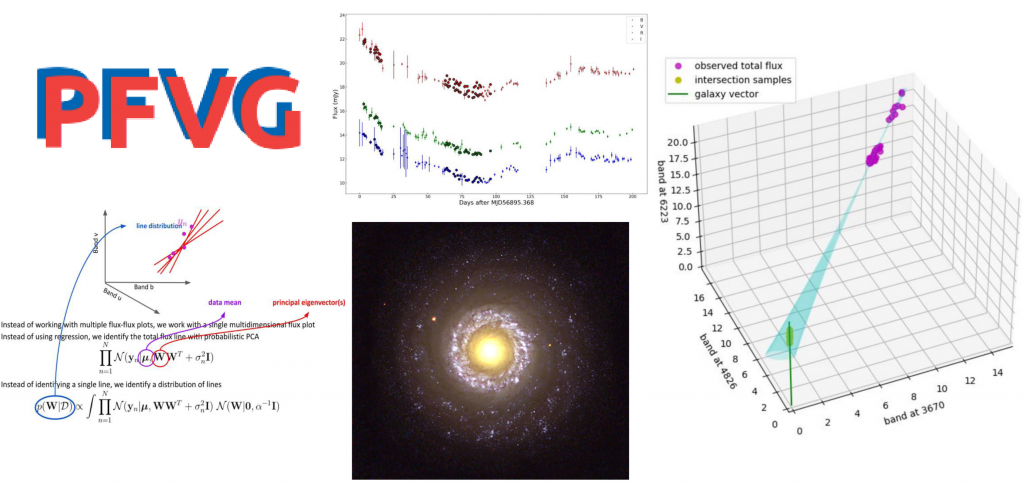PFVG – A novel probabilistic approach to separate galaxy from nuclear contribution in quasars
Quasars are considered the most energetic galaxies in the universe. Their main energy source is a supermassive black hole at the center. However, the contribution of the galaxy’s starlight can reach between 20-80% of the quasar’s total luminosity. Therefore, to study the physics of the black hole’s nuclear environment, it is essential to separate the galaxy’s starlight from the total luminosity. Moreover, a correct estimate of the nuclear luminosity has significant implications for the refinement of the scaling relations required to use quasars as standard cosmological candles.
Researchers at HITS have developed the Probabilistic Flux Variation Gradient (PFVG) software to isolate the contribution of the nucleus with respect to the galaxy using time series observed at different wavelengths. The new probabilistic approach is able to recover galaxy fluxes within 1% precision. This provides reliable estimates of the pure nuclear luminosity, which is necessary to probe theoretical models of quasar accretion disks, broad-line regions, and dust torus structures. The method will be particularly useful for large upcoming photometric survey telescopes such as the public optical/near-infrared Legacy Survey of Space and Time (LSST) at the Vera C. Rubin Observatory.
The PFVG software was developed in the Astroinformatics (AIN) group at HITS and is available on GitHub: https://github.com/HITS-AIN/ProbabilisticFluxVariationGradient.jl/

References:
Paper: N. Gianniotis, F. Pozo Nuñez, and K. L. Polsterer
Disentangling the optical AGN and host-galaxy luminosity with a probabilistic flux variation gradient, A&A 657, A126 (2022) https://doi.org/10.1051/0004-6361/202141710
Examples: https://github.com/HITS-AIN/PFVG_AA2021
About HITS
HITS, the Heidelberg Institute for Theoretical Studies, was established in 2010 by physicist and SAP co-founder Klaus Tschira (1940-2015) and the Klaus Tschira Foundation as a private, non-profit research institute. HITS conducts basic research in the natural, mathematical, and computer sciences. Major research directions include complex simulations across scales, making sense of data, and enabling science via computational research. Application areas range from molecular biology to astrophysics. An essential characteristic of the Institute is interdisciplinarity, implemented in numerous cross-group and cross-disciplinary projects. The base funding of HITS is provided by the Klaus Tschira Foundation.